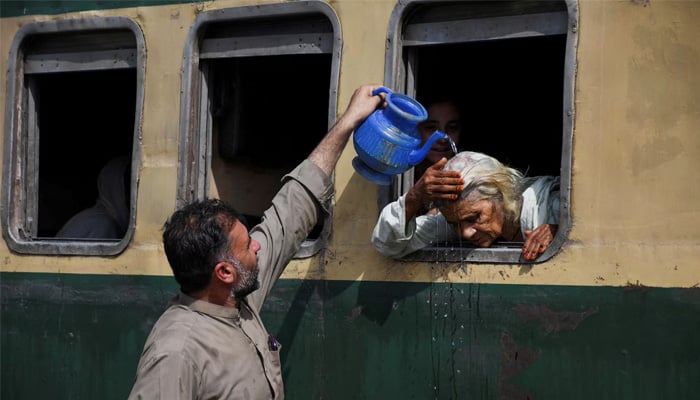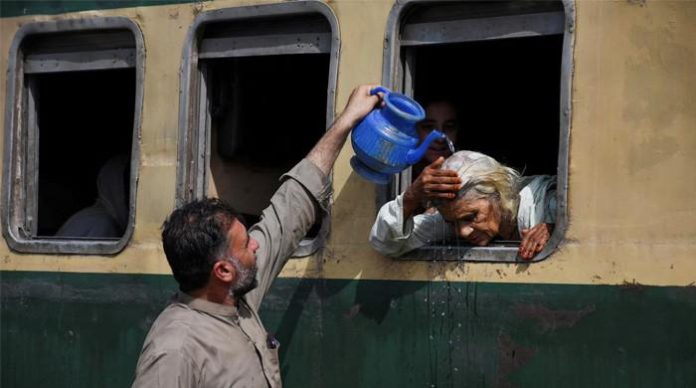
Heat is now the leading cause of weather-related deaths globally, with an estimated 489,000 people dying from heat-related causes each year, according to the World Health Organisation (WHO).
As extreme temperatures become more common in Pakistan as well, lets delve into the WHO guidelines to help people stay safe during heatwaves.
In extreme heat, the human body struggles to regulate internal temperature, increasing the risk of heat exhaustion, kidney injury and cardiovascular stress. The effects can be sudden and severe: hospitalisations and deaths may spike within hours or days of a heatwave onset.
WHO emphasises that the health impacts of heat are predictable and largely preventable. With effective public health measures and coordinated action across sectors, many deaths and illnesses can be avoided.
However, awareness remains low both among health workers and the general public.
The WHO recommends staying indoors during the hottest times of the day, and keeping living spaces cool by blocking direct sunlight with curtains or blinds and ventilating at night. Using fans or air conditioning, if available, can offer critical relief, with air conditioners recommended to be set at 27°C.
Even a few hours in a cool environment each day can significantly reduce the risk of heat-related illness.
Hydration is another key aspect of heat protection. People are advised to drink water regularly, even if they do not feel thirsty, about one cup per hour and at least 2 to 3 litres per day.
They should avoid beverages that can lead to dehydration, such as alcohol and sugary drinks. Eating lighter meals more frequently can also help the body cope with high temperatures.
Taking cool showers or baths can help lower body temperature, and those who must go outside should remain in shaded areas as much as possible. Light, loose-fitting garments made of breathable fabric, as well as wide-brimmed hats and sunglasses, can offer additional protection outdoors.
WHO also emphasises the importance of checking in on family, friends and neighbours, especially those who are older, live alone or have health conditions that put them at greater risk during extreme heat.
“Some people are particularly vulnerable to the effects of heat, including young children, older people, and people with chronic health conditions, so keep in touch with family, friends and neighbours, especially those who spend much of their time alone. By looking after each other and staying informed, we can minimise the impact of extreme heat on our communities,” said WHO official Dr Skender Syla.


